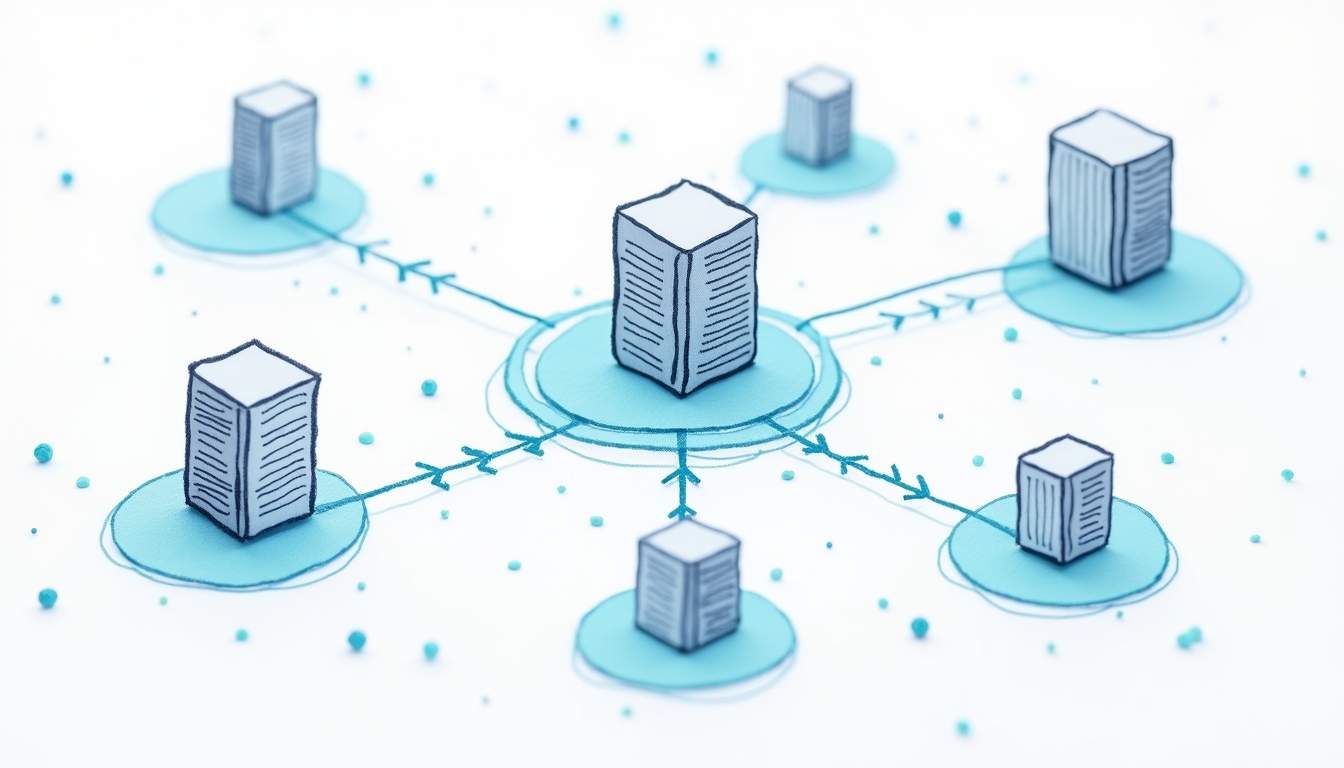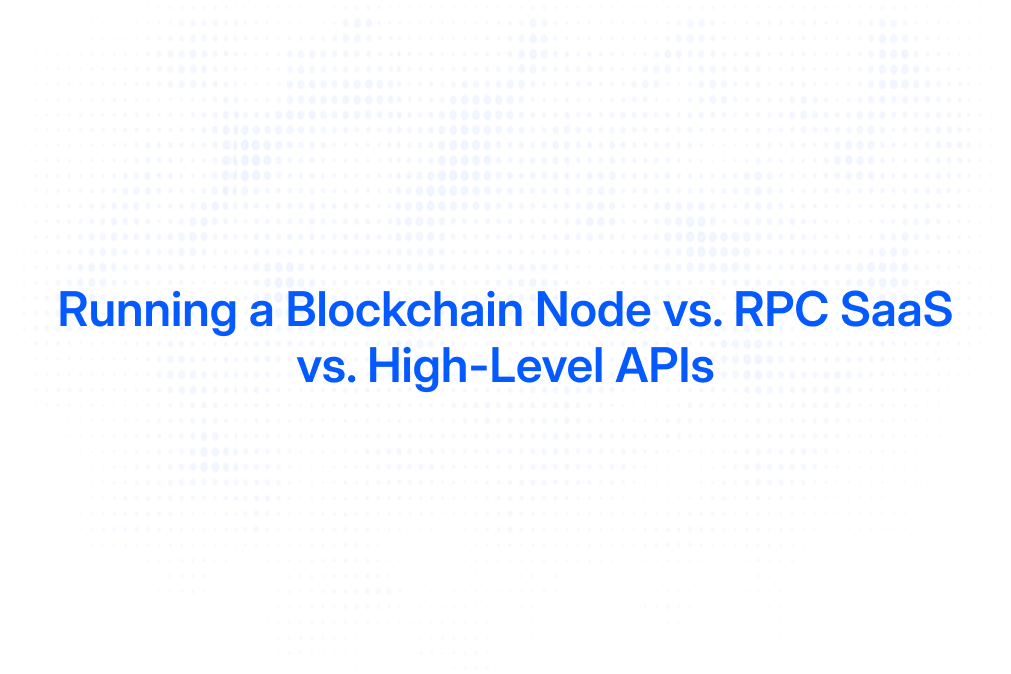How to Auto-Route Solana RPC Providers
In the rapidly evolving world of Web3, ensuring reliable and efficient access to blockchain networks is critical. For Solana developers, Remote Procedure Call (RPC) providers serve as the essential gateways to interact with the blockchain. However, relying on a single RPC provider can lead to downtime, latency issues, and increased costs. Auto-routing across multiple Solana RPC providers offers a robust solution to these challenges, enhancing reliability, reducing latency, and optimizing costs.
This article provides a comprehensive guide on how to implement RPC auto-routing for Solana applications, explaining the core concepts, benefits, and practical steps to set up a multi-provider RPC routing system.
Understanding RPC Auto-Routing in Solana
What is RPC Auto-Routing?
RPC auto-routing refers to the automated process of directing blockchain API requests across multiple RPC providers instead of relying on a single endpoint. For Solana, this means that your application can dynamically select the best RPC node based on criteria such as availability, latency, and cost. This approach mitigates risks associated with provider outages and network congestion.
By distributing requests intelligently, auto-routing ensures your Solana app maintains high uptime and responsiveness, which is crucial for user experience and transaction reliability. This is particularly important in a fast-paced environment where users expect instant feedback and seamless interactions with the blockchain. With auto-routing, developers can focus on building robust applications without the constant worry about the underlying infrastructure's performance.
Why Auto-Routing Matters for Solana Developers
Solana’s high throughput and fast block times demand equally performant infrastructure. When your app depends on a single RPC provider, any downtime or slow response can cause transaction delays or failures. Auto-routing addresses this by providing redundancy and load balancing, which are essential for mission-critical applications like decentralized exchanges, NFT marketplaces, and DeFi platforms.
Moreover, auto-routing helps optimize costs by leveraging cheaper providers when possible and avoiding over-reliance on expensive or overloaded nodes. This cost-efficiency is particularly beneficial for startups and smaller projects that may not have the budget to sustain high fees associated with premium RPC services. By using auto-routing, developers can ensure their applications remain competitive without sacrificing performance or user satisfaction.
In addition to cost and performance benefits, RPC auto-routing enhances the overall resilience of applications built on Solana. In a landscape where blockchain technology is rapidly evolving, having the ability to adapt to various RPC providers allows developers to stay ahead of the curve. This flexibility means that as new providers emerge or existing ones improve their services, developers can seamlessly integrate these changes without major overhauls to their codebase. Consequently, this adaptability fosters innovation and encourages developers to experiment with new features and functionalities, ultimately enriching the Solana ecosystem.
Key Benefits of Auto-Routing Solana RPC Providers
Improved Reliability and Reduced Downtime
RPC outages can severely impact blockchain apps, leading to failed transactions and frustrated users. Multi-provider RPC routing creates redundancy, so if one provider experiences downtime, traffic is automatically rerouted to healthy nodes. This failover mechanism significantly reduces the risk of service interruptions.
Studies show that multi-provider setups can reduce RPC downtime by up to 90%, ensuring your Solana app remains available even during provider outages. This level of reliability is crucial for applications that handle real-time transactions, such as decentralized finance (DeFi) platforms and gaming applications, where even a momentary lapse in service can lead to lost revenue and user trust. By leveraging auto-routing, developers can ensure that their applications maintain a consistent user experience, which is vital in a competitive market where users have numerous options at their fingertips.
Lower Latency and Enhanced Performance
Latency is a critical factor in blockchain interactions. Auto-routing systems can select the fastest RPC provider based on geographic proximity or current network conditions. This dynamic routing minimizes response times, improving the speed of transaction confirmations and data retrieval.
Moreover, lower latency not only enhances user satisfaction but also allows applications to scale more effectively. As user demand grows, the ability to quickly process transactions becomes even more essential. For instance, in high-stakes trading environments, every millisecond counts, and a slight delay can result in significant financial losses. By optimizing performance through auto-routing, developers can ensure that their applications are equipped to handle peak loads while delivering seamless interactions, thus fostering user engagement and retention.
Cost Optimization
Different RPC providers have varying pricing models. Auto-routing enables your application to balance requests between providers, prioritizing cheaper options when possible without compromising reliability. This approach can reduce RPC costs by 30-40%, a significant saving for startups and large-scale applications alike.
In addition to direct cost savings, utilizing multiple RPC providers can provide strategic advantages in terms of negotiating better rates. As your application grows, you can leverage your usage data to negotiate contracts with providers, ensuring that you receive the best possible pricing and service terms. This flexibility not only helps in managing operational costs but also allows for budget allocation towards other critical areas of development, such as enhancing user interfaces or expanding marketing efforts. Ultimately, this financial prudence can lead to a more sustainable business model, enabling long-term growth and innovation in the rapidly evolving blockchain landscape.
How to Set Up Auto-Routing for Solana RPC Providers
Step 1: Identify and Select Multiple Reliable RPC Providers
Begin by researching and selecting multiple Solana RPC providers. Consider factors such as uptime history, latency, geographic coverage, pricing, and support for the Solana features your app requires.
Popular Solana RPC providers include QuickNode, Alchemy, and dedicated Solana infrastructure services. Using a mix of providers ensures you avoid single points of failure.
Step 2: Implement a Multi-Provider RPC Router
The core of auto-routing is an intelligent router that manages requests across your chosen providers. This router should support:
- Health Checks: Continuously monitor each provider’s availability and response times.
- Failover: Automatically reroute requests from failing providers to healthy ones.
- Load Balancing: Distribute traffic evenly or based on provider performance metrics.
- Latency-Based Routing: Prioritize providers with the lowest response times.
You can build a custom router or use existing RPC aggregator services that offer auto-routing capabilities tailored for Solana.
Step 3: Integrate the Router with Your Solana Application
Once the router is set up, update your Solana app's RPC endpoint configuration to point to the router instead of a single provider. This change is typically transparent to your application logic, requiring minimal code adjustments.
Ensure your app handles retries gracefully and supports asynchronous request handling to maximize the benefits of auto-routing.
Step 4: Monitor and Optimize
After deployment, continuously monitor the performance of your RPC routing system. Track metrics such as request success rates, latency, and cost. Use this data to fine-tune routing policies, add or remove providers, and optimize your infrastructure.
Regularly update your provider list to incorporate new entrants or remove underperforming nodes.
Advanced Considerations for Solana RPC Auto-Routing
Multi-Region Routing for Global Performance
Solana’s decentralized nature means users may connect from around the world. Implementing multi-region RPC routing ensures requests are served from geographically closest providers, reducing latency and improving user experience globally.
Combining Auto-Routing with Google Multi-Cloud Proxy (MCP)
Emerging infrastructure solutions like Google MCP enable multi-cloud RPC routing, enhancing scalability and reliability. Integrating MCP with your Solana RPC auto-routing setup can provide additional benefits such as API orchestration and seamless scaling, especially for high-demand applications.
Security and Rate Limiting
When routing across multiple providers, ensure your system enforces security best practices, including authentication, encryption, and rate limiting. This protects your app from abuse and maintains provider relationships.
Conclusion
Auto-routing Solana RPC providers is a strategic approach to building resilient, performant, and cost-effective Web3 applications. By intelligently distributing requests across multiple RPC endpoints, developers can mitigate downtime risks, reduce latency, and optimize operational expenses.
Implementing an auto-routing solution involves selecting reliable providers, deploying a smart routing layer, and continuously monitoring performance. As the Solana ecosystem grows, adopting multi-provider RPC routing will become increasingly essential for maintaining competitive and reliable blockchain applications.
For developers looking to future-proof their Solana apps, embracing RPC auto-routing is not just an option—it’s a necessity.
Ready to elevate your Solana application's performance and reliability? Look no further than Uniblock, the Web3 infrastructure orchestration platform that revolutionizes how you connect to blockchain data. With Uniblock, you gain access to a single API endpoint that intelligently auto-routes across multiple providers, ensuring maximum uptime, minimal latency, and significant cost savings. Join the ranks of over 2,000 developers on 100+ chains who trust Uniblock to streamline their decentralized infrastructure and free them from vendor lock-in. Start building with Uniblock today and scale your dApps, tooling, or analytics with confidence and ease.
.svg)


.png)



